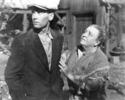Last week’s updated Census projections showing whites becoming a minority by 2042 – far more rapidly than previous estimates – is sure to turn up the heat in some quarters of American society. While it no doubt re-ignites predictable dooms-day scenarios among anti-immigration activists who warn about the “death of the West” and the gradual erosion of American values, it may also give some average Americans pause as well. read more »
Demographics
Sprawl Beyond Sprawl: America Moves to Smaller Metropolitan Areas
For those interested in demographics or economic trends, domestic migration --- people moving from one county to another in the United States --- offers a critical window to the future. Domestic migration, which excludes international migration and the natural increase of births in excess of deaths, tells us much about how people are voting --- with their feet. Domestic migrants are also important because they generally arrive at their new residences with more resources than the average immigrant or newborn. read more »
Minority America
Recent news from the Census Bureau that a “minority” majority might be a reality somewhat sooner than expected --- 2042 instead of 2050 --- may lead to many misapprehensions, if not in the media, certainly in the private spaces of Americans. read more »
Progressives, New Dealers, and the Politics of Landscape
One of the greatest ironies of our time is the fact that today’s leading progressives tend to despise the very decentralized landscape that an earlier generation of New Deal liberals created. read more »
Thoughts on the Future of Seattle: A Vision of 2040 for Pugetopolis
I have been attacked as a defender of ‘sprawl’ although I consider myself a man of the left, with a political-economy philosophy that is ‘social democratic – far to the left of the contemporary Democratic party. I view global warming as very serious, but consider continuing global warfare over resources, land and religion, and increasing national and global economic and political inequality as even more critical. read more »
Questioning Conventional Wisdom: Should Poor Folks Stay Put?
There is reason to think again about the now-current idea of dispersing the population of poor folks in the Skid Row district of downtown Los Angeles and similar precincts in other cities across the U.S.
There’s cause to pause over notions such as mixing “affordable housing” that’s priced in the range of working-class or poor folks alongside spiffy market-rate units. read more »
Urban America: The New Solid South
By Joel Kotkin and Mark Schill
Ever since the 1930s, most urban areas have leaned Democratic. But in presidential elections, many remained stubbornly competitive between the two parties. As late as 1988, for example, Republican nominees won Dallas County and made strong showings in the core urban counties of Cook (Chicago), Los Angeles and King (Seattle). read more »
- Login to post comments
Cities are Changing, But Urban Living Remains Optional
Starting with the first oil crisis in 1973, it’s become de rigueur for the press to accompany every spike in energy prices with a spate of stories explaining how the higher costs will inevitably lead to the revival of the long declining industrial cities of the Northeast and Midwest. But don’t count on a boom in Baltimore or Cleveland anytime soon. read more »
- Login to post comments
Millennials: Key to Post-ethnic America?
One of the most widely observed, yet least understood, attributes about the emerging Millennial generation is their ethnic and cultural heterogeneity. While they represent the most ethnically varied cohort in American history—far more than any previous U.S. generation—few social commentators actually agree on what this remarkable demographic detail really portends. Will Millennials usher in a new post-ethnic America—or simply reconfigure some different version of identity politics? read more »
Millennial Values, Involvement, and Social Capital
“American history carefully examined,” argued political scientist Robert Putnam in his notable book Bowling Alone, “is a story of ups and downs in civic engagement . . . a story of collapse and of renewal.” According to Putnam, the passage of the civic-minded World War II generation from American society has led to deterioration in social capital. read more »






















